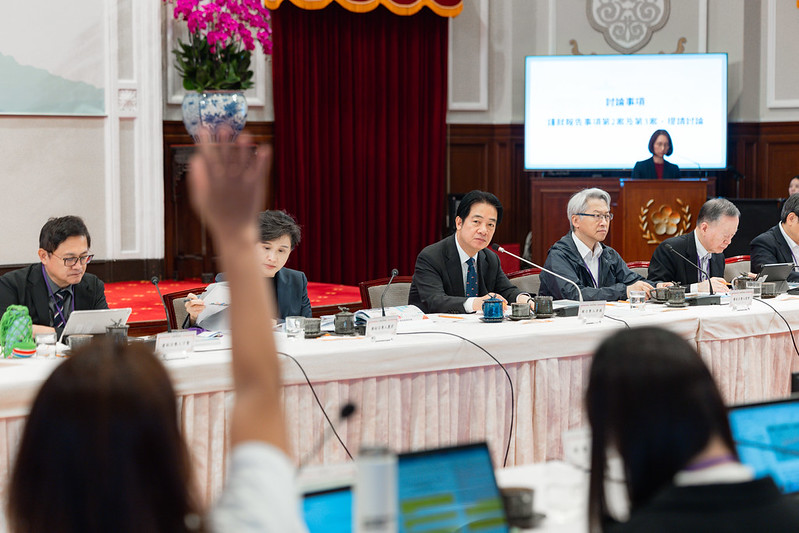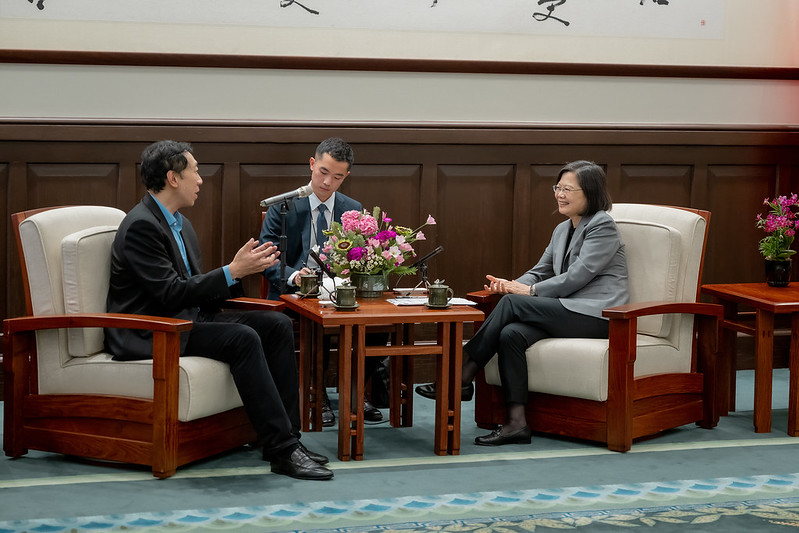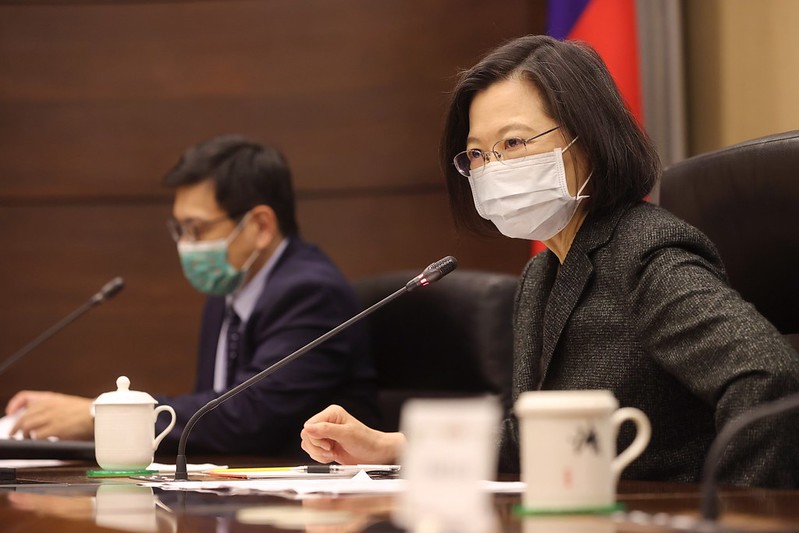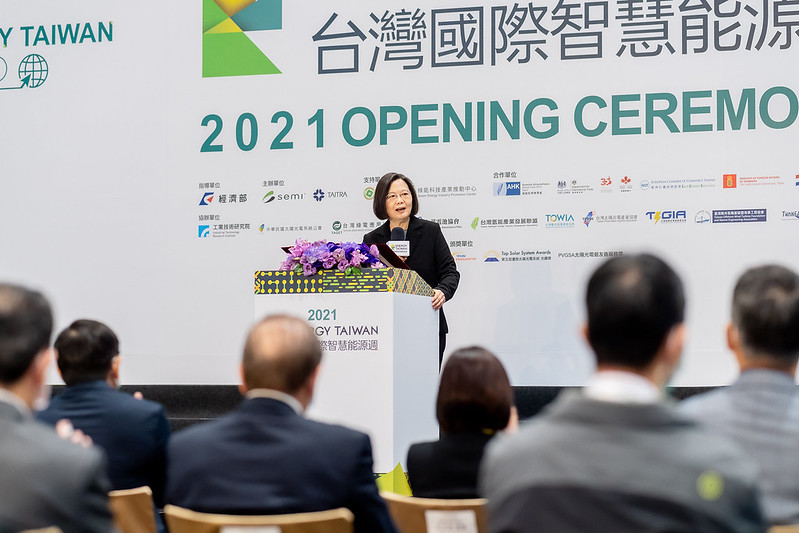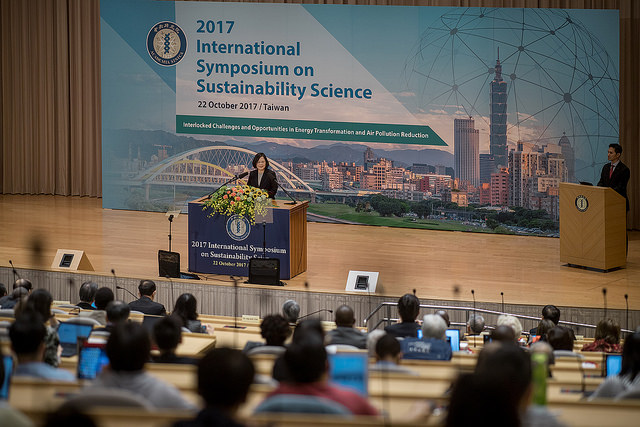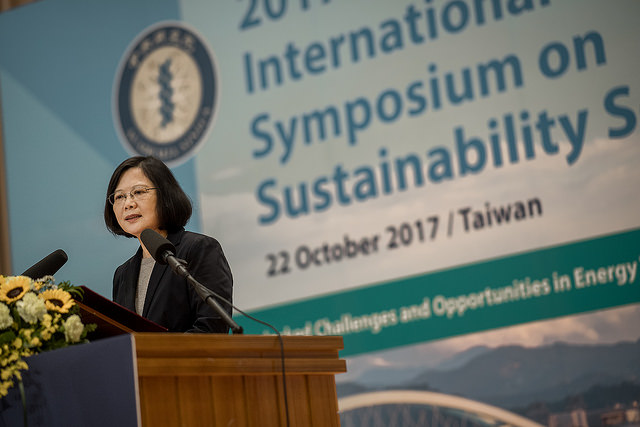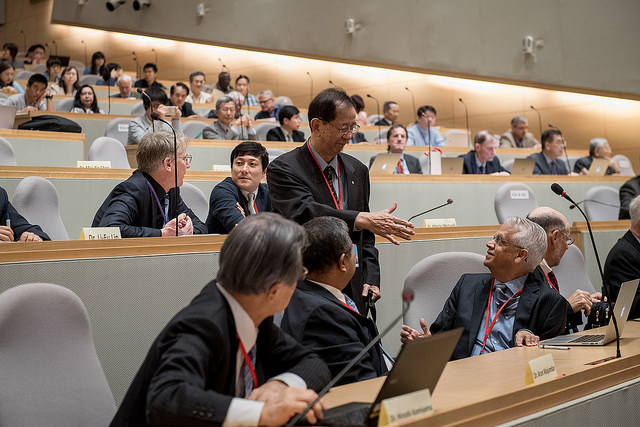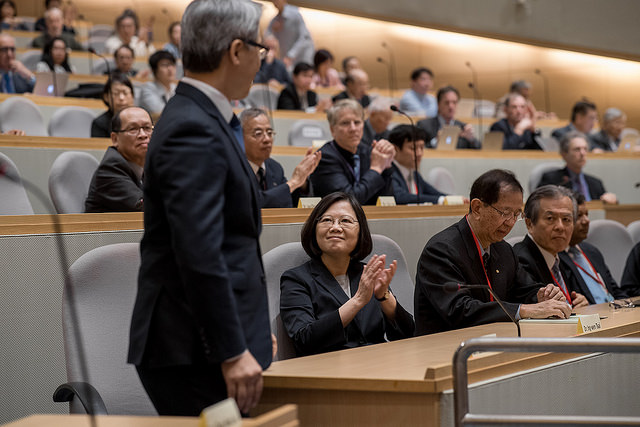News & activities
 News releases
News releases
President James C. Liao (廖俊智) of Academia Sinica;
President Emeritus Yuan-Tseh Lee (李遠哲) of Academia Sinica;
President Gordon McBean of the International Council for Science (ICSU);
President Alberto Martinelli of the International Social Science Council (ISSC);
Honored guests:
Good morning!
It's a great honor to be here at Academia Sinica to address the topic of sustainability science. I want to thank everybody for putting this event together. I also want to extend a warm welcome to our many distinguished speakers and guests from around the world.
Sustainability science is a new academic field. The experts here – particularly those at the ICSU who introduced this term in 2001 – know there is no more important area related to the future of this planet. Instead of just recognizing the problem, you are tackling it head on, by looking at how we can fundamentally shift our approach to development and the environment.
The need for sustainability is undisputed. Last month, we had our hottest ever September day here in Taipei, reaching 38.5 degrees. Earlier this year, we also saw a record-breaking 16 straight days of temperatures over 36 degrees in Taipei. The previous record was 9 days in 2012. These examples are being repeated around the world. Each of the last three years has broken global temperatures records.
The effects of this are increasingly felt, whether it's through the increased severity of natural disasters here in Taiwan, or rising sea levels in coastal regions around the world. Several of our diplomatic allies, including the Marshall Islands and Tuvalu – where I will be visiting next week – are particularly susceptible. Climate change will impact us all.
This is the situation we are in today. Former US President Obama once said: "We are the first generation to feel the impact of climate change, and the last generation that can do something about it." Taiwan shares in this responsibility. I've come here today to talk about how my administration is working to create a more sustainable future not only here in Taiwan, but also around the world.
Foremost, one of my top priorities is to reform our energy sector – a prime contributor to global warming. This includes increasing the use of renewable sources to 20 percent of our energy mix in eight years. We're on track now. Already, significant investment and expertise both domestic and international are entering our renewable energy sector, creating thousands of new green collar jobs in the process.
In fact, one of the best offshore wind farm sites in the world is right here in Taiwan, off the coast of Changhua County.
We know that this transition cannot take place without participation from industry. Managed right, Taiwan has the potential to be a world leader in this sector. As noted by an American Chamber of Commerce report, we have many of the industries needed to support wind-power projects, from electronics to steel. To take advantage of this, we launched the Shalun Green Energy Science City in Tainan last year. Public, private, and academic resources are joining forces to accelerate the development of the renewable energy industry here.
Our efforts here will contribute to our climate change goals. Taiwan will commit to lowering our carbon emissions to at least 20% below 2005 levels by 2030 and 50% by 2050.
Second, we are working for sustainability not only in our economic development, but also in our everyday lives.
Key provisions of this are included in our Forward-looking Infrastructure Development Program passed by the legislature in July. This program includes, among others, funding for public transportation, as well as better infrastructure for green energy and water management. These investments will make our cities and counties cleaner, greener, and smarter. Overall, the program is expected to add over NT$500 billion to GDP – showing that sustainability and economic growth can go hand in hand.
Tackling air quality, in particular the reduction of PM 2.5 pollutants, is also a priority of ours. This year, we approved a Clean Air Action plan that contains both incentives and restrictions. Under this plan, the government will invest NT$36.5 billion to implement 14 air pollution control measures designed to improve air quality across Taiwan. This includes everything from stricter regulatory controls for power plants, to phasing out aging diesel trucks and motorcycles.
Third, Taiwan is also contributing to sustainability in the region and around the world.
One of our premier programs for this is the International Environmental Partnership program. Under this program, both Taiwan and the US work together with experts from around the world to help build capacity for addressing environmental issues. We are providing the international community with the resources, talent, and technology needed to engage in such efforts.
Furthermore, to showcase our efforts for a more sustainable future, our Minister of Environmental Protection Administration Lee Ying-yuan (李應元), last month presented Taiwan's very first Voluntary National Review in New York. This is another effort to align with international goals even when we're not a member of the UN.
I know many of you are leading scientists and advisors to governments around the world. So I want to make it clear that Taiwan is ready to help advance the sustainability agenda, not just here in Taiwan, but also in the region and the world. As our efforts demonstrate, Taiwan is doing everything we can as a member – a responsible member – of the international community.
We do so because we fully understand the importance of transitioning to a sustainable and low carbon society. We also understand that sustainability and economic growth can complement each other, and play an equal role in our future. But most importantly, we do so because we understand we have a common stake in our shared future.
I want to thank everyone here again for your participation. Thank you all for coming and I wish this event every success. Thank you!
